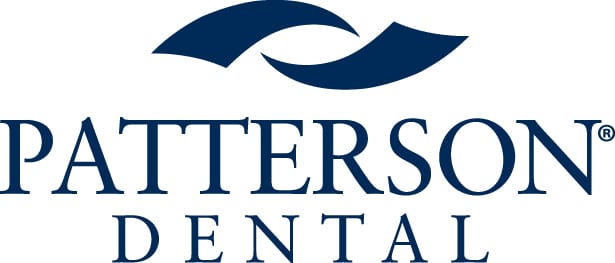By: Jennifer Murphy, DDS, FAGD
Are you considering becoming a dentist? If so, you already know this career provides many rewards, challenges, and opportunities.
Dentists are often at the top of the list of the best jobs year after year. If you’re weighing dentistry against other potential career paths, it’ll help to see the variety of benefits this career offers.
Have you considered all 10 of the following benefits of being a dentist?
10 Benefits of Being a Dentist
Let’s explore the reasons why and look at the benefits of becoming a dentist.
- Helping People
- Working With Your Hands
- Seeing Immediate Results
- Financially Rewarding
- Freedom & Flexibility
- Better Work-Life Balance
- Job Stability
- Prestige
- Varied Experiences
- Continual Learning
1. Helping People as a Dentist
So, why dentistry? At the top of most dentists’ list of job perks is the opportunity to help people who need help.
As a dentist, there are many ways to help people. Patients come to us seeking our care. We have the knowledge and skills as dentists to help patients and provide guidance for their oral health.
While there are patients who say they “hate the dentist,” most patients will be grateful for your care, especially when they are in pain. It is very satisfying helping a patient in pain or having a patient tear up because you’ve given him or her a more esthetically pleasing smile.
2. Working With Your Hands
It is a good feeling working with your hands. As a dentist, you get to use your own hands to help patients achieve better oral health.
Along with working with your hands, you have opportunities to be creative at times. Much of the time in dentistry, you are creating. There is also the artistic side of dentistry. I once worked with a dentist who looked at dentistry like she got to do arts and crafts all day!
Of course, the stakes are high: You have a patient’s well-being in your hands. But seeing the creative side of dentistry can make you even more effective as a dentist.
3. Seeing Immediate Results
One summer as an undergrad, I worked in a research lab and did not see any type of results over three months. It was frustrating! With most dental procedures, you can see immediate results.
As a dentist, you often diagnose decay, remove it with a handpiece/bur, and then replace it with a composite filling. There is something to be said for that immediate result and a sense of accomplishment in doing so.
And, of course, you can often see immediate results on the faces of your patients when you find the source and can alleviate nagging dental pain.
4. Being a Dentist is Financially Rewarding
Most everyone knows dentists make a good living. I often feel that when I say I’m a dentist, people think of dollar signs and not teeth. Dentistry can provide a good income, particularly for the time worked.
The national average annual income for a general dentist is $163,000. The average number of hours spent per week treating patients is 33. That equates to over $78 per hour (with four weeks off a year).
Specialists earn higher salaries. Just note that, in general dentistry or any dental specialty, you will work hard for that income.
5. Freedom and Flexibility
As a dentist, you have many options for how you can choose to practice. You have the ability to own your own dental practice and be your own boss. You can choose to work for a company, a DSO (corporate dentistry), or a private practice. In each of those situations, you can practice solo or in a group with several other dentists.
Public health is another route many take, doing dentistry for a government entity in a federal, state, or local capacity. Examples include the Indian Health Services, state or local health departments, or FQHCs (Federally Qualified Health Centers), just to name a few.
In short, there are multiple career paths one can take as a dentist.
Along with the practicalities of what type of practice you choose as a general dentist, you can decide how you want to practice. As a general dentist, you can choose what procedures you do or don’t do.
Some dentists do almost everything in their offices, some may opt to refer all of their endodontic procedures, and others may choose to only focus on sleep medicine.
There really are a lot of possibilities depending on what you enjoy and how you want to practice.
6. Better Work-Life Balance
Most dentists work weekdays and typical business hours. This certainly can vary, depending on your employer and the sector of the profession. I’ve found most private offices work standard 8 to 5.
However, many corporate offices will work earlier or later hours to try to attract more patients. But ultimately, you’ll have many options. If you choose to run your own practice, you are the boss and get to set your own schedule.
Aside from setting work hours, you can also choose how many days you work. Dentists typically work anywhere from two to five days per week. Some get creative with their schedule to have long weekends every other week while still offering patients plenty of appointment options.
As a dentist, you’ll have many possibilities for days and hours worked which can improve work-life balance compared to other careers.
7. Job Stability
Dentists have been and always will be in high demand. Having moved around and lived in three states, I’ve seen the plethora of job opportunities for dentists. As a dentist, you are a highly trained professional with a specific set of skills.
People will always have dental issues and a need to see a dentist, whether that is for preventive, restorative, or surgical treatment. Most people go to the dentist at some point in or throughout their lives.
Even when there may be an economic downturn, dentistry remains one of the most stable professions.
8. Prestige
There is some prestige in being a doctor. Family and friends may admire you for your years of dedication as a dental student to earn your doctoral degree.
As a dentist, you are often a respected member of the community as well as a role model in your community. Dentists are typically highly trusted and respected, and this is reflected in a recent poll from MoneyWise which lists dentists as among the most respected professions in the U.S.
After you’ve gained some experience, you may even enjoy training future dental students and guiding them into the profession.
9. Varied Experiences
Every day is interesting. You get to meet lots of different people. Every patient is unique, presenting unique issues and concerns along with a unique personality.
Every day is challenging in unique ways. Procedures each present their own difficulties. Diagnosing and treatment planning can be like playing detective, especially if there is an inconspicuous problem a patient has.
You’ll also be interacting with staff every day, which can also be interesting and challenging. Each staffer brings a distinctive personality to the office.
10. Continual Learning
Dentistry is constantly evolving. Dental technology and materials change. You will always be learning and growing as a dentist. There are continuing education requirements to renew and keep your dental license in good standing.
These things mean you will be taking continuing education and learning all the time. Lifelong learning is a key component of happiness, according to a variety of studies.
Your new knowledge as a dentist may be about a specific material or technology, practice management, or even a form of personal development! As a dentist, you certainly get to learn all the time.
Should You Become a Dentist?
So now what do you think? Do those benefits still make you want to become a dentist?
While many of these benefits sound outstanding (and they certainly are), be sure to explore the disadvantages as well. Talk with practicing dentists and even spend time with them in their offices to get a full picture of what being a dentist involves.
Remember, everything has its pros and cons. While this article highlights the benefits, I want to note that being a dentist isn’t all sunshine and rainbows, and the field of dentistry is constantly evolving.
NEXT READ: Tips from Top Dentists on Dental School, Leadership, and More
Photo by Pavel Danilyuk


